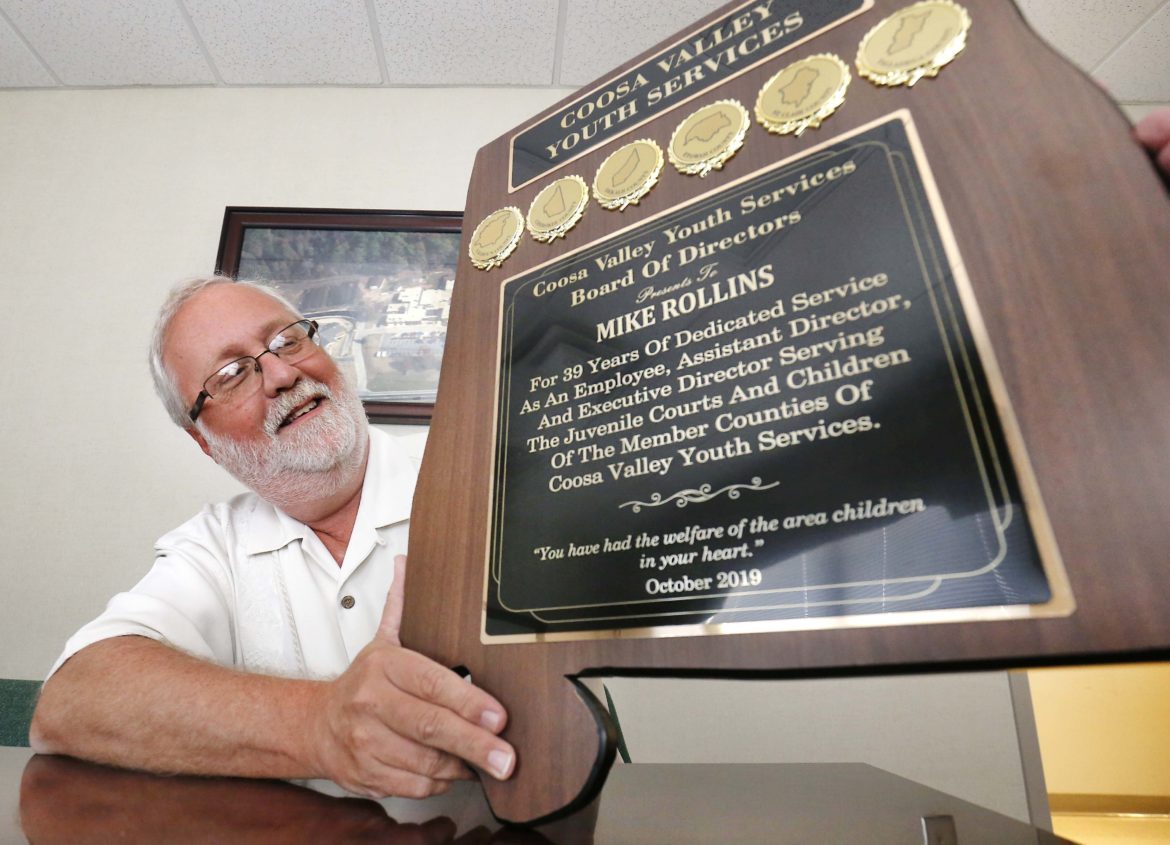This time of year usually marks year-end celebrations and summer preparations for youth. But with regular traditions like prom and graduation on hold, and with many jobs in limbo, teenagers in Alabama aren’t sure what to expect for the coming months.
That uncertainty can cause a lot of stress.
If anyone knows how hard this time might be for Alabama’s youth, it’s Mike Rollins. When Rollins was a teenager, he said he got into “a bit of trouble” and was sent to the Coosa Valley youth detention center — repeatedly.
He never expected to spend his entire career at Coosa Valley, but that’s what happened after he got a job working maintenance there at 19. Over the next 25 years, Rollins rose through the ranks, and last year he retired as Coosa Valley’s director, a role in which he oversaw youth services for 11 Alabama counties.
The kids he worked with during that time spent anywhere from 72 hours up to a year in detention, going to school, attending equine, art, gardening or athletic therapeutic programs. The kids got in trouble for different reasons — from frequent truancy to theft. They came from different backgrounds. But, Rollins said, they have one thing in common, same as any kids: Youth are more vulnerable in high-stress situations, and as a result, act out.
As adults are contending with the public health and economic fallout from coronavirus, kids are wrestling with their own issues.
Rollins talked about how to better understand youth to keep them safe. Here’s an edited version of our conversation:
Webb-Hehn:
What was your goal for when kids leave one of Coosa Valley’s programs?
Rollins:
A better way to manage themselves in this crazy world of ours in terms of their choices, their anger management, how to stay away from things that harm them.
Hopefully, to have given them a better insight into having a strong relationship with adults, to know that maybe even though their path might have been pretty rough along the way, there are some good, quality, caring adults they can count on.
[Related: Coronavirus Produces School Closures, Uncertain Futures, Extra Stress for Alabama Teens]
[Related: Alabama Anti-gun Violence Activists Expect Uptick In Shootings Due to COVID-19 Stress]
Hopefully, they’ve learned to respect others and learn to respect themselves a little bit more.
Basically, just the skills needed to make it. I mean, it's a tough, tough world for kids and teenagers these days.
Webb-Hehn:
How is it tough for the kids you’ve worked with?
Rollins:
Kids come with baggage from home — dysfunctional families, lack of support. They're being raised by grandparents or maybe batted around. Some have been in a situation with physical, sexual or emotional abuse, or all that.
But then we also get kids from good, good families and good homes that have just made some mistakes. Same as adults, kids have addiction issues and mental health issues, and those things can lead to bad choices.
Webb-Hehn:
What problems do you think kids are facing on top of what they were already dealing with?
Rollins:
My concern for a lot of these families has been, obviously, economic. You know, being out of work and not having the things they need, whether it's meals or utilities. There’s alcohol abuse, drug abuse. And then coupled with that, a lot of domestic violence issues come up because people have the extra stress on them, and they're not managing that and can't get away, can't get out.
You know, some kids are right in the middle of all that. Plus, for those kids who were already at risk, now they don't have the supervision of being in a daily classroom anymore. So you have to wonder what type of structure they're being provided, particularly if they don't have caregivers at home who have the means or the wherewithal or the interest in assuring a continuation of their education. So yeah, there’s a lot of stuff going on.
Webb-Hehn:
How can we help the kids in our lives once social distancing is over?
Rollins:
Kids who struggle often don’t have proper social connections. The social programs where kids once connected with trustworthy adults are also breaking down — Scouting, sports. Every kid needs a chance for positive connections with adults. Social media can offer a chance for kids to connect with one another but it comes with a lot of baggage like bullying, and I think it teaches kids to not connect in a deep, personal way.
So, determine what they get juiced about and what they're good at doing and then look for something in their community that meets that criteria to plug them into. Find something that they wake up in the morning excited about, and they really feel a sense of success doing a good job with. That could be anything across the spectrum that the kids are interested in.
The important thing is connecting them to a community and giving them something to feel proud of.
This story was produced in conjunction with The Anniston Star. It is part of the Juvenile Justice Information Exchange’s project on targeting gun violence. Support is provided by The Kendeda Fund. Youth Today is solely responsible for the content and maintains editorial independence.

Pingback: Coronavirus Produces School Closures, Uncertain Futures, Extra Stress for Alabama Teens – Make Money Online